The African Jesuit AIDS Network (AJAN), in partnership with the Catholic Prison Chaplaincy in Kenya, undertook a 5-day Training of Trainers on the AJAN HIV and AIDS Prevention Program for Youth (AHAPPY). The training which took place from 1st to 5th July 2024, brought together 28 prison catechists and officers from the South Rift Region; Catholic Dioceses of Nakuru, Nyahururu, Kericho and Ngong. The goal of the training was to empower the catechists with essential knowledge and skills to support young people in correctional facilities address the needs of inmates and the families of prison officers, who often face stigmatization and abandonment by society, aiming to provide them with much-needed support and resources.
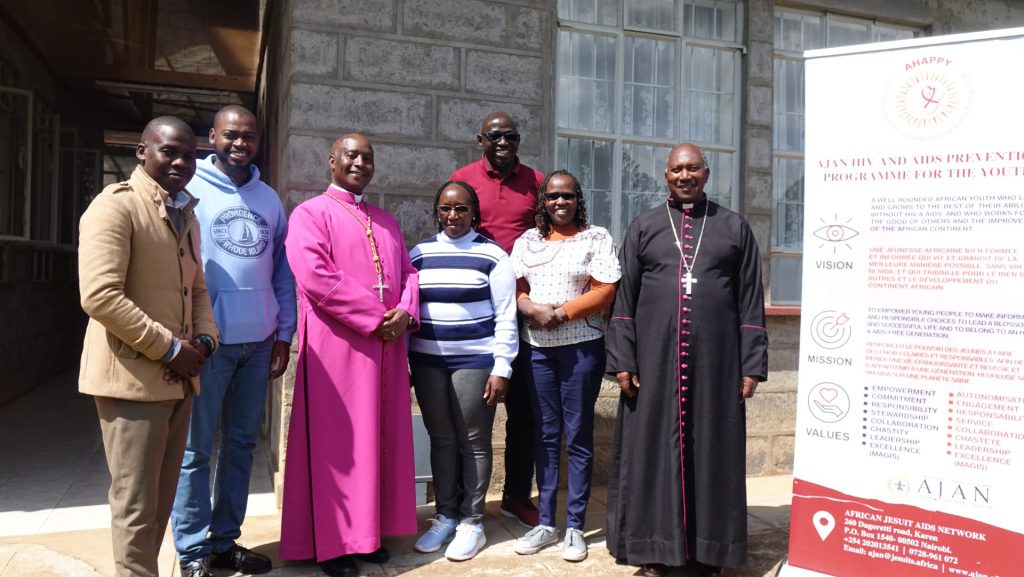
In the five days the facilitators; Ms. Pascalia Sergon, Fernando Nimbu SJ., Mr. Ondigo Johnfisher, Ms. Lilian Waweru and Mr. Dennis Owuoche, engaged Participants on topics and Issues that extend beyond the prison walls and affecting the wider community. Through the formation received participants will be able to positively influence community outreach activities, support families of inmates, and contribute to broader social change. Participants were encouraged to accompany the inmates by understanding the root causes of the problems they are facing and offer an environment in which they can get to heal and grow this will ensure that they are able to gain the needed skills and values as they are integrated back to the society.
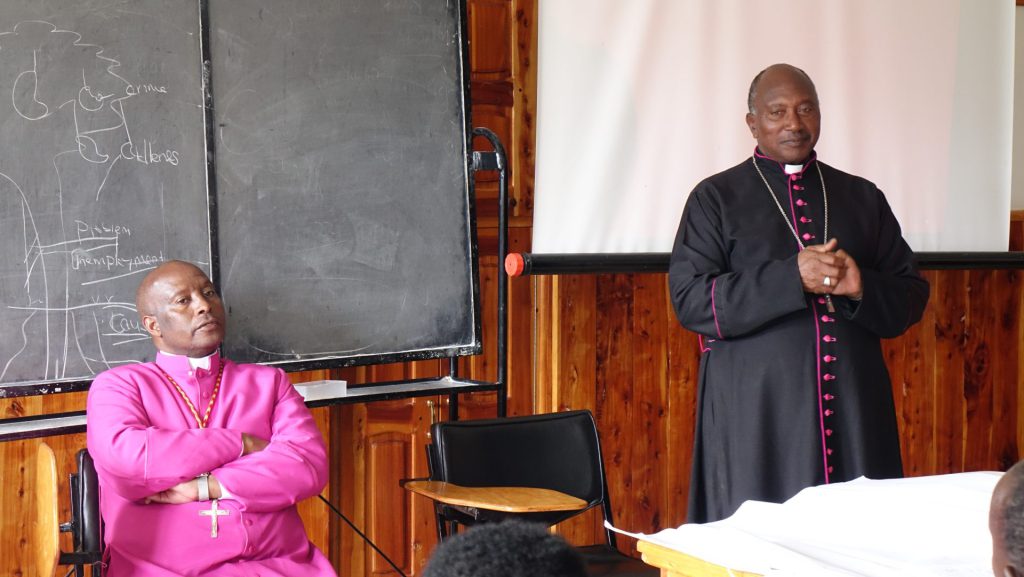
During the second day of the training, we were honored by the visit of Rt. Rev. Wallace Ng’ang’a Gichihi, Auxiliary Bishop for the Catholic Archdiocese of Nairobi (ADN), and Rt. Rev. Joseph Mbatia, Bishop of the Catholic Diocese of Nyahururu in Kenya. In their speech to the participants of the training, Rt. Rev. Wallace Ng’ang’a Gichihi said, “As pastoral agents I am happy for the work that you do with a lot of zeal. You need to understand that ‘your apostolate is very unique’ as you are serving people who have lost hope, those who have life imprisonment others might be there by ‘mistake’ and others have been imprisoned because of various crimes but we appreciate the work you do as you give them hope, by collaborating a lot with the clergy. The work of the Catechist is similar to that of teachers, nurses and social work. In undertaking such work where you are serving people you don’t do it for what you get but do it because you are serving God because if you do it for your salary you never have joy but if you do it because you are serving God you get a lot of joy. When you assist prisoners, particularly those who are there for life imprisonment the fact that s/he feels is being cared for s/he becomes a good Christian and it’s very encouraging when you find them later on active in the church, producing songs or having groups within the church that is where we get our joy from and when you come from work and you see that transformation you become fulfilled, at least I touched a soul. Mine is to encourage you to just go and touch one soul and you will find your fulfilment, God bless you all.”
Adding on the above statements, Rt. Rev. Joseph Mbatia said, “As Catechists working in prisons, the work you undertake is for the Church, you are great collaborators of that work and we as leaders of the church appreciate the great work that you do. Through your collaboration with us you are great agents of the church and of the message of salvation, love and hope to those who lack hope, those who feel unloved, and to those who feel that the people outside there are enjoying what we ought to have been enjoying but we give them hope. We are grateful to you all and the work you do.”
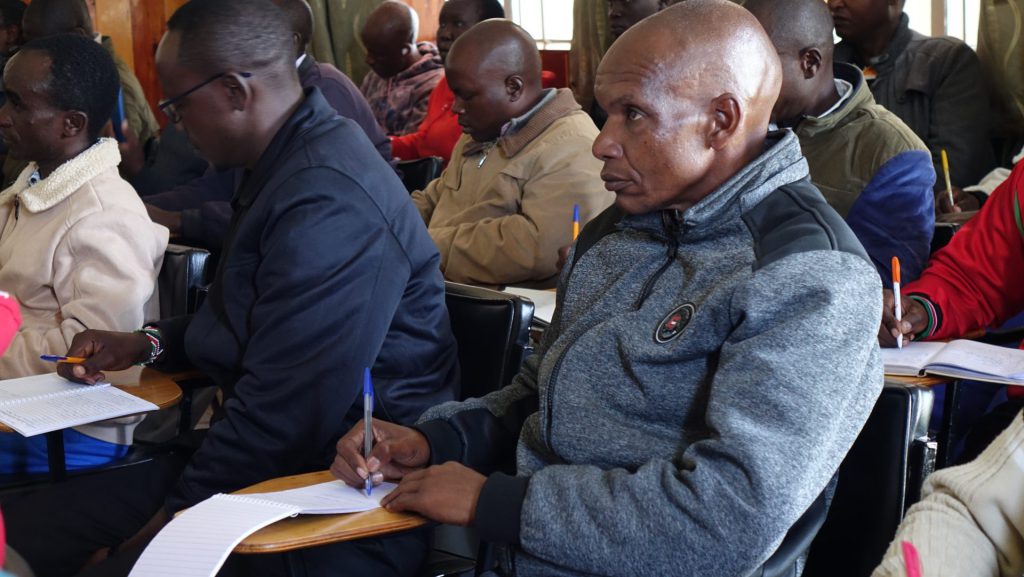
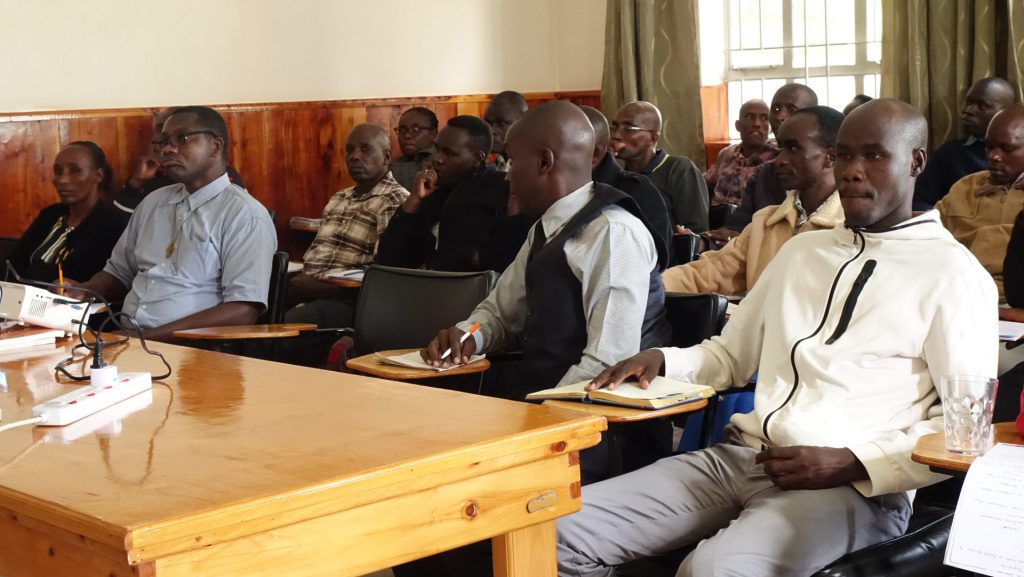
The Bishops appreciated the role of the AHAPPY training in the formation of catechists and prison officers. While the participants are sensitized on HIV and its prevention, the Bishops emphasized the importance of equipping catechists and prison officers with the skills and knowledge to support the rehabilitation and reintegration of inmates into society. Their roles in accompanying inmates help create a support system that addresses the psychological, social, and emotional aspects of the inmates, thereby fostering a more conducive environment for positive change.
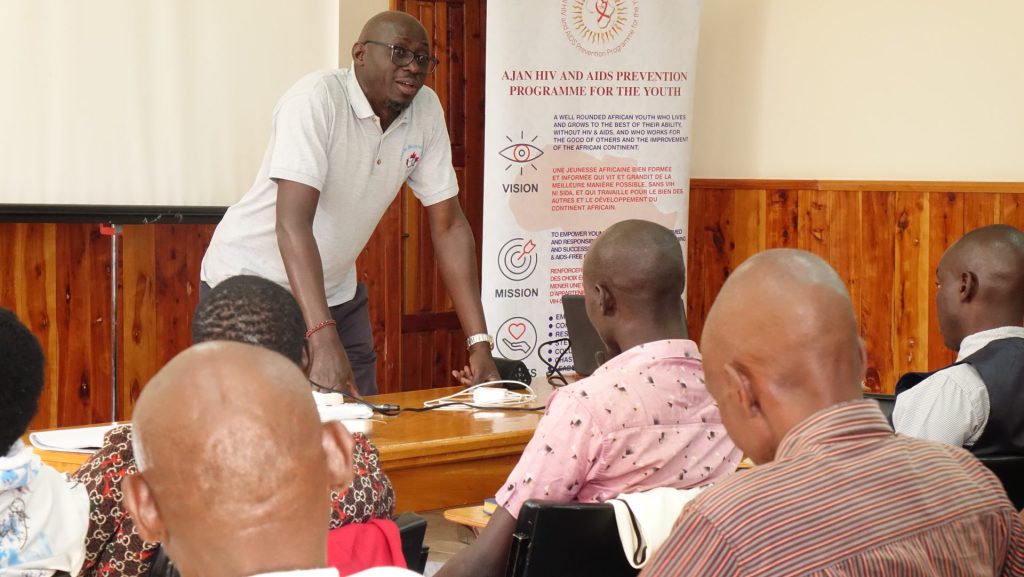
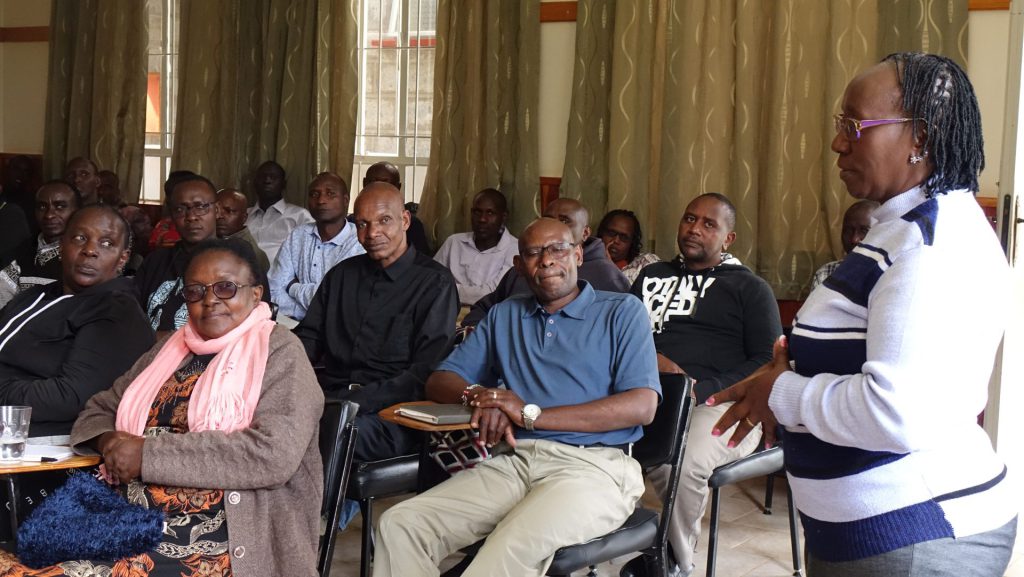
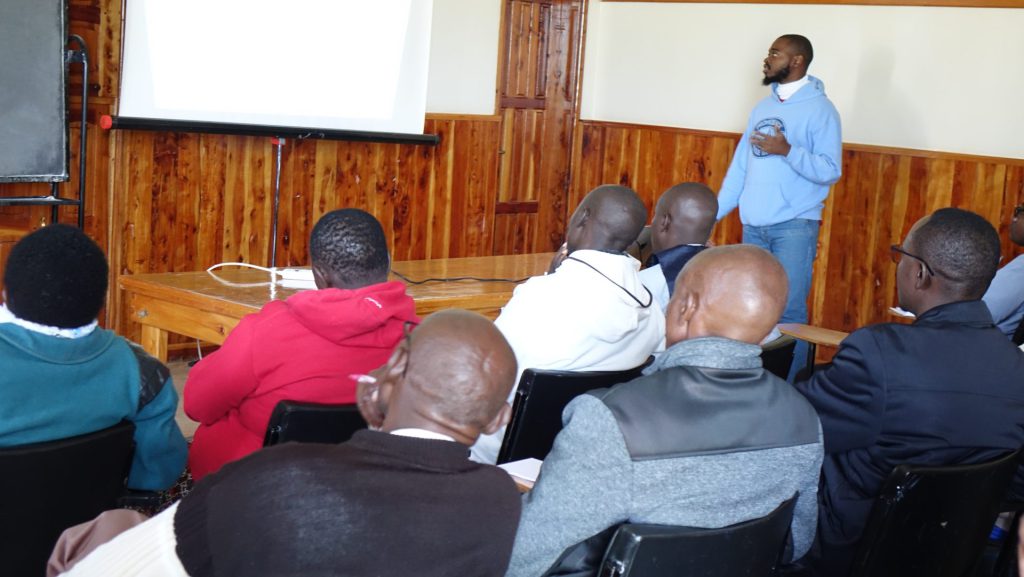
The training had positive feedback gauged upon the feedback received from the participants.
According to Meshack Agola one of the participants of the training,
“AHAPPY is a program that really resonated with what I do, in my daily life as a leader and as an individual getting to know that each of us is created by God and sent to the world for a mission. The training was really informative particularly on the topic of Guidance and counselling which is really helpful to me because I deal with those who in our society can said to be rejected even, they themselves lack the hope because the prison environment is not a home and at times those visiting their family member in prison do it in a secretive way. These same people we are talking about have challenges in life and this program seriously informed me that I need to be attending to them as a caregiver not just as a spiritual leader. One of the challenges they face is stigmatization that comes out of declaring that one is HIV positive where they are not appreciated and welcomed among groups and this is the situation in Naivasha Maximum prison. With all these, then I am challenged to go and share whatever knowledge and skills that I have gained to better the lives of the people I am accompanying every day.”
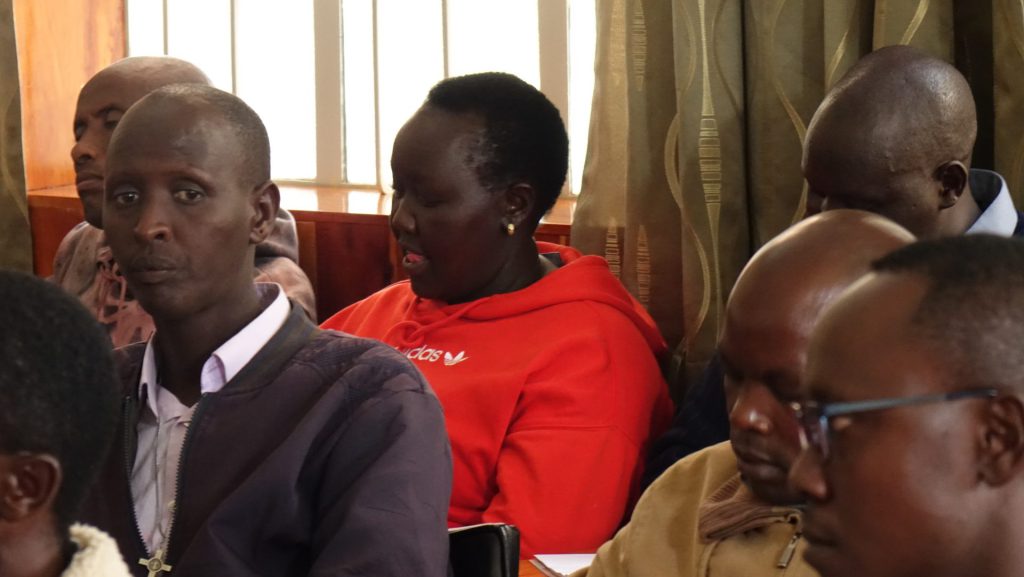
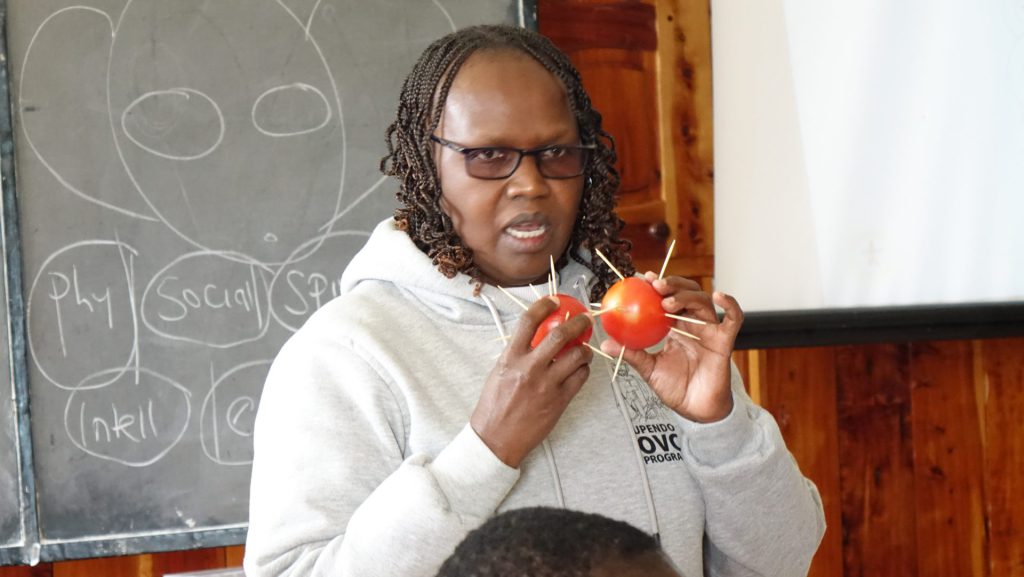
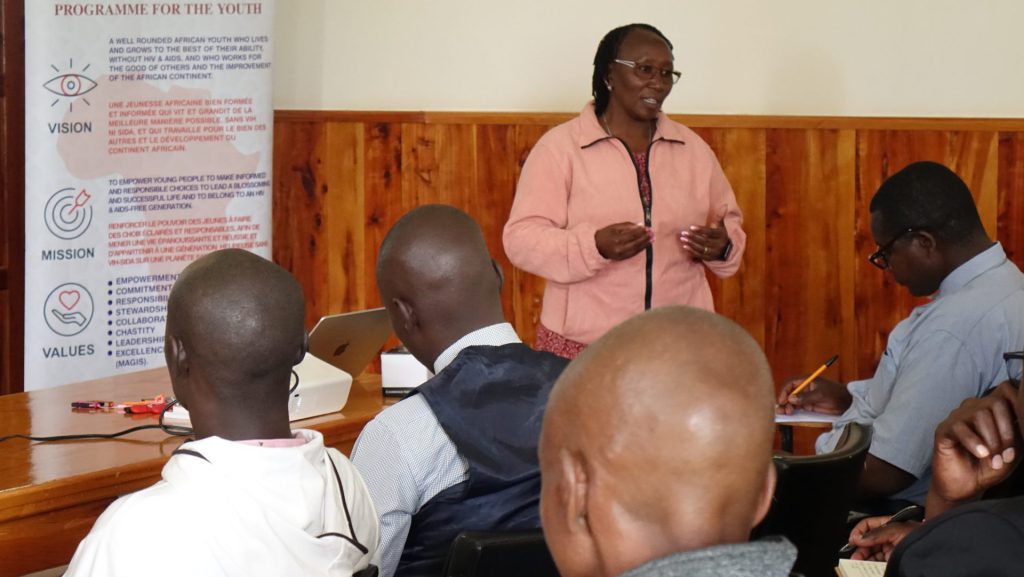
Giving her feedback on the five-day AHAPPY training, Ms. Lilian Waweru a prison Catechist at Naivasha Women Prison and AHAPPY facilitator said,
“I appreciate the participants for their active participation, it was a group that was eager to learn, because much of what they have been trained it goes back to their personal reflections. Besides being equipped with skills to go and work with prisoners and the youth they are also given an opportunity where they are also able to reflect on their own lives. I am expecting the participants to develop programs that will benefit the people they are serving, especially reaching out to our young people both in prisons and even the community this are the staff children on issues of HIV which sometimes we are silent about it. By going back to the social teachings of the church they can look at what is it they are going to do by applying be it the Bible, be it the spiritual formation they have received so that they can use the knowledge gained to help the inmates, the children or the young people to come into the realization that AIDS is a reality even to undertake psychoeducation because sometime they could be ignorance in the community which can only be done away by raising awareness among them. I am expecting that they will be actively involved in those areas and not leave it to the medical team but to realize that they also have a role to play. By implementing and documenting the program and activities they are undertaking this will improve the communications between various stakeholders involved.”
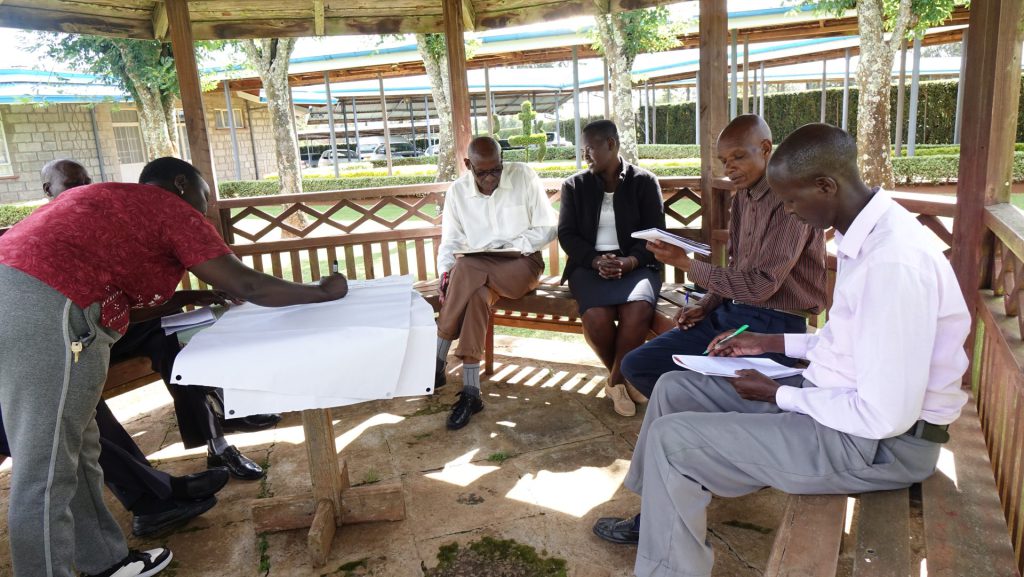
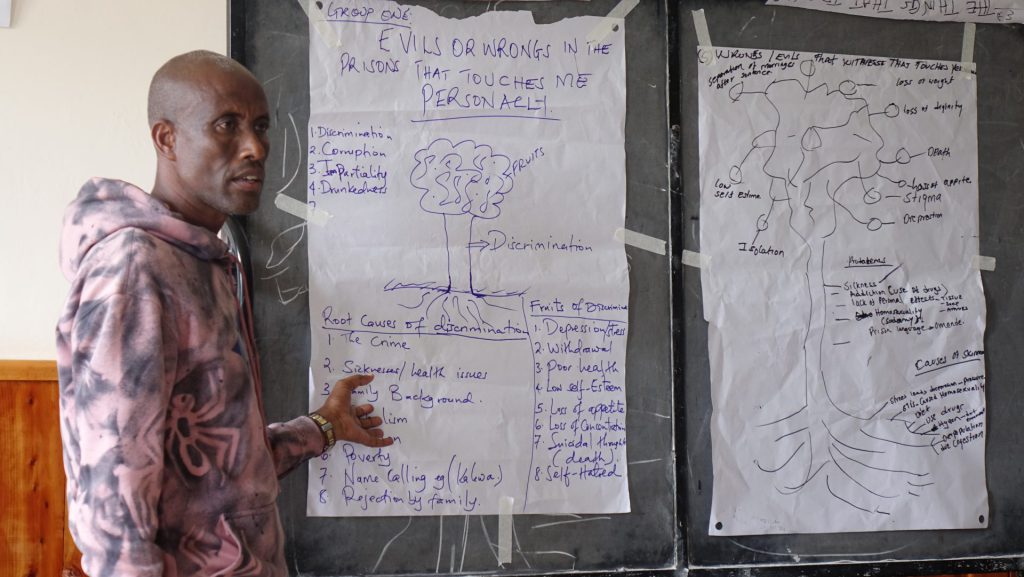
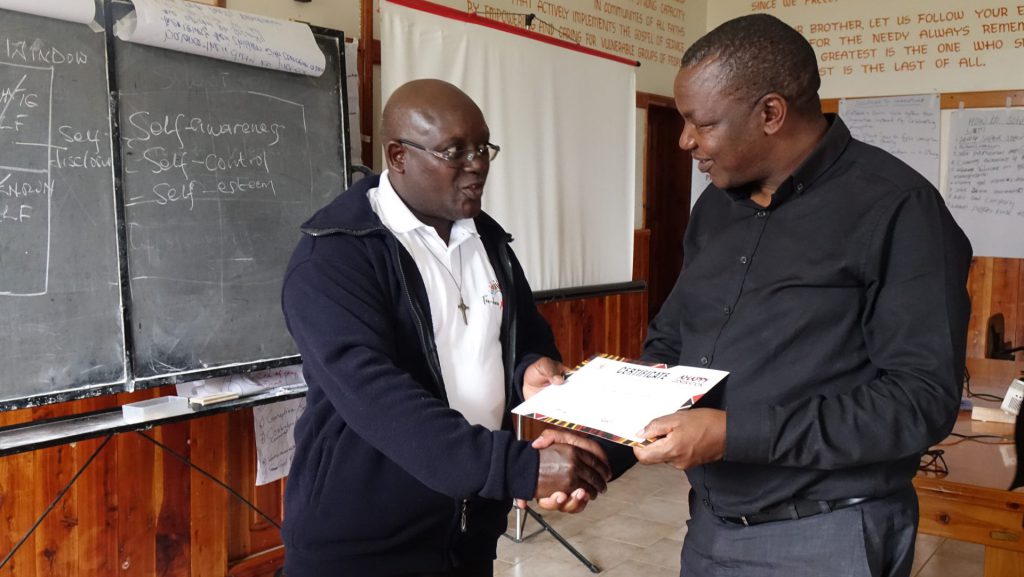
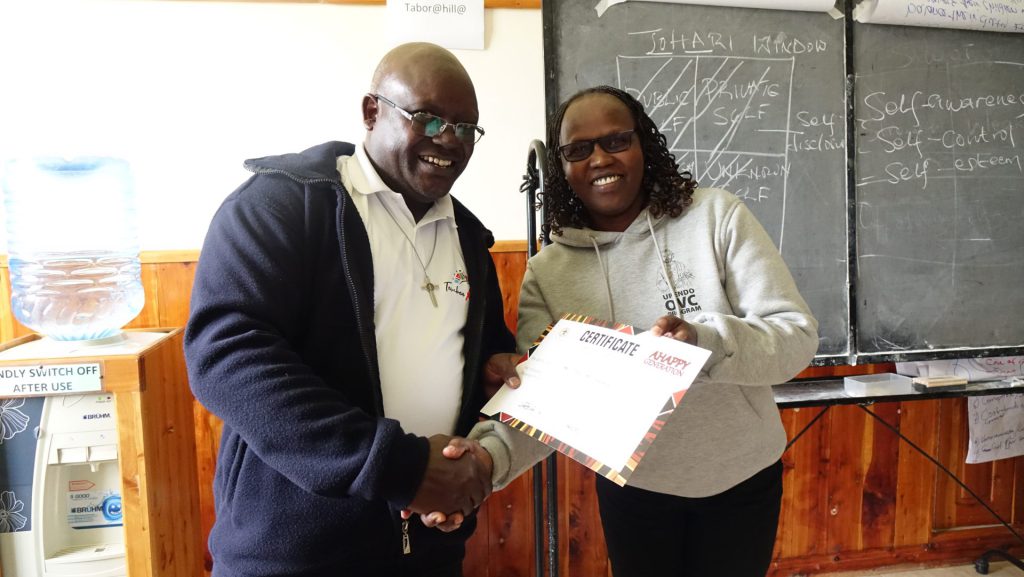
Speaking at the end of the training Fr. Paul Mirin’gu, Regional Chaplain Rift Valley Prisons said,
“The AHAPPY training was a very holistic program that covered pertinent topics on the issues that the Catechists handle in prison, issues of HIV and AIDS, mental health and self-awareness for both the staff and the inmates. Though the training was tailor-made my feeling is that in the next training if we could have more training covering issues of mental health in prisons and restorative justice because we are in a retributive justice system. Training in restorative justice means that if the Chaplain and Catechist journey with the inmates they are able to be close them and realize that the prisoners still harbour a lot of anger and bitterness and would wish to have revenge. With these in mind then the Chaplain or Catechist through restorative justice training is able to encourage reconciliation by may be organizing a forum that brings together the prisoners and the persons that they offended, where they can have a conversation and kind of forgive each other this enables the one in prison to be at peace and even be attentive to the rehabilitation programs in prison. My hope is that the Catechists and prison officers who were empowered and got the resources they need will continue ministering in the prisons by imparting the same knowledge and skills not only to the inmates but to the prison staff and their families.
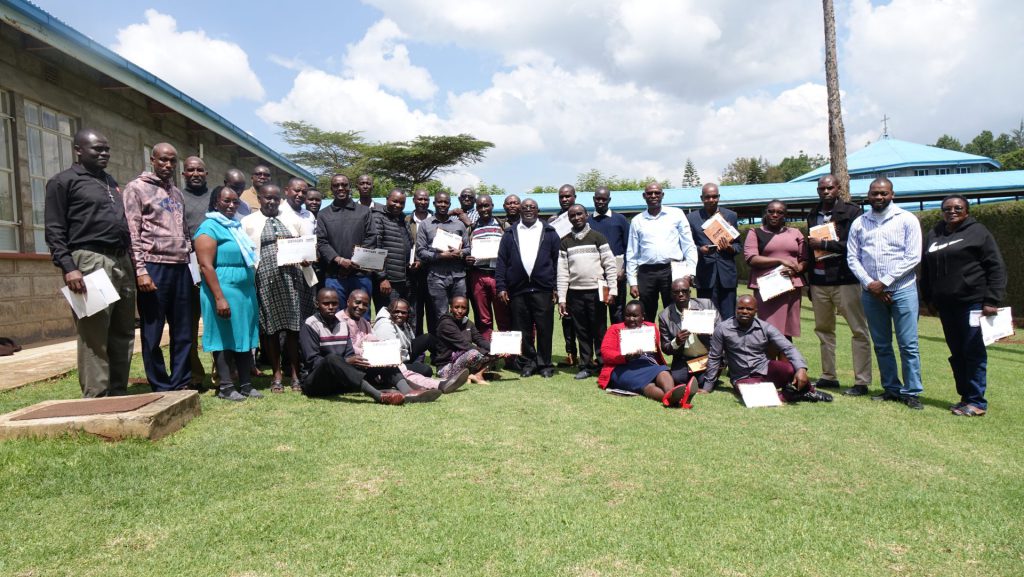
Upon completing the training, participants were certified as AHAPPY trainees, becoming members of the extensive AHAPPY generation across Africa. We aspire that they will utilize their newfound knowledge and skills, which include guidance, counseling, and effective rehabilitation techniques, to curb the tendency for an offender to engage in repeated criminal behavior and lower the rates of HIV and STI infections in prisons. This training has provided valuable insights into understanding inmates’ needs, supporting those affected by HIV, and promoting best practices for their successful reintegration into society.
By, Dennis Owuoche
AJAN Communications Officer.

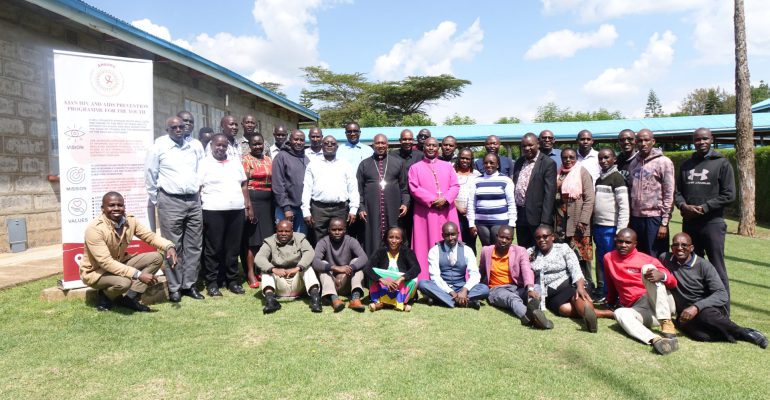
Comments are closed.